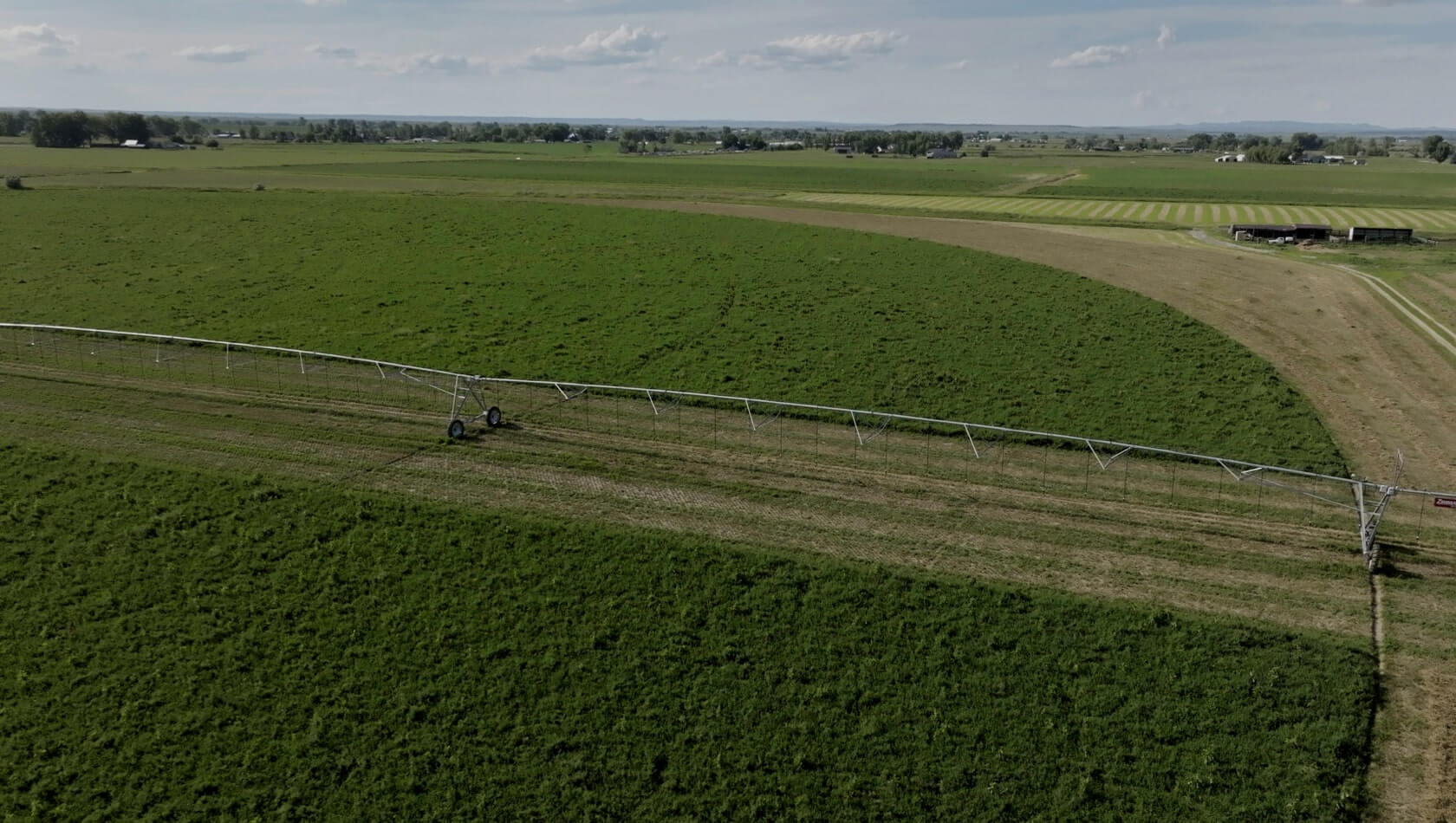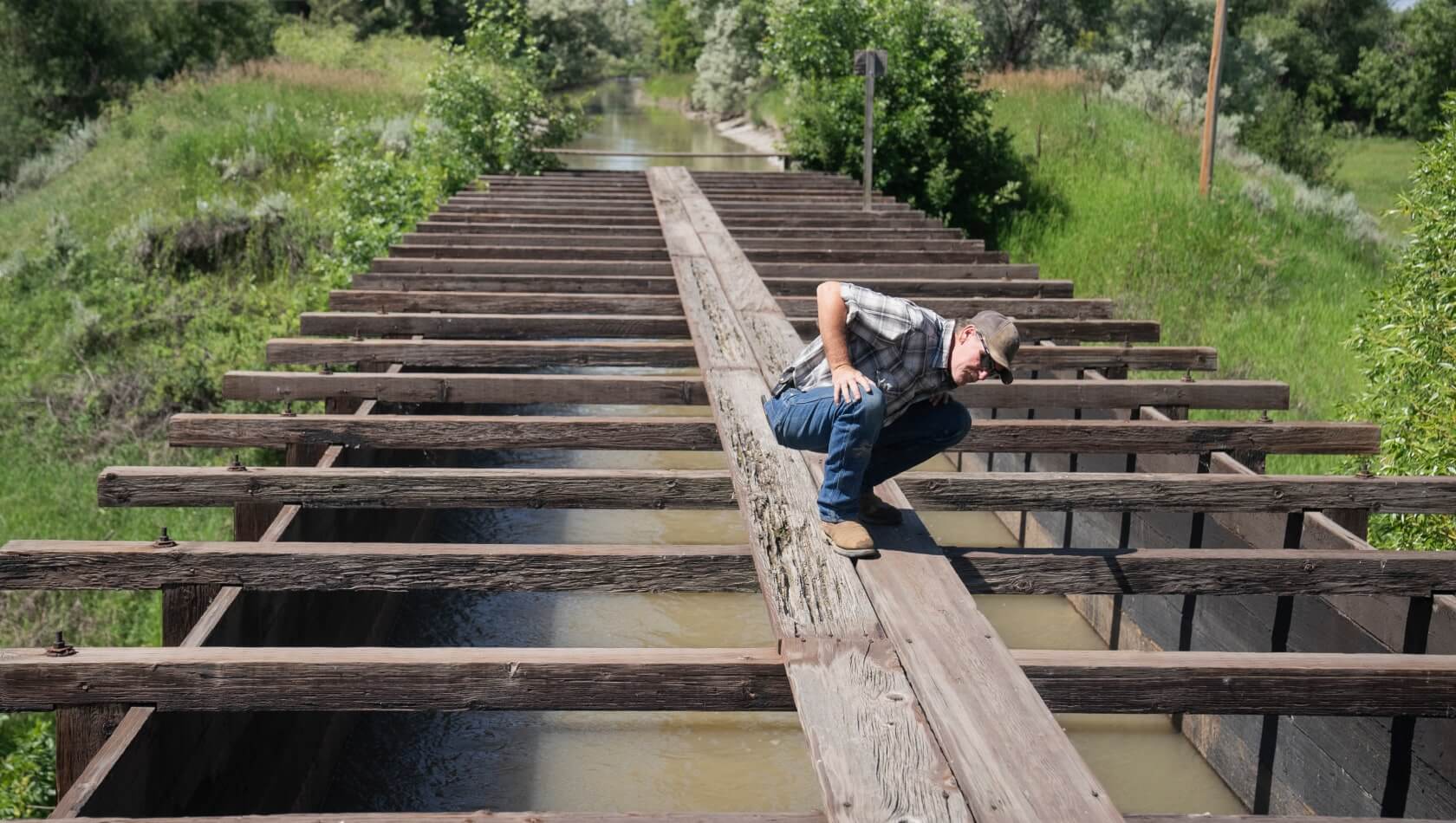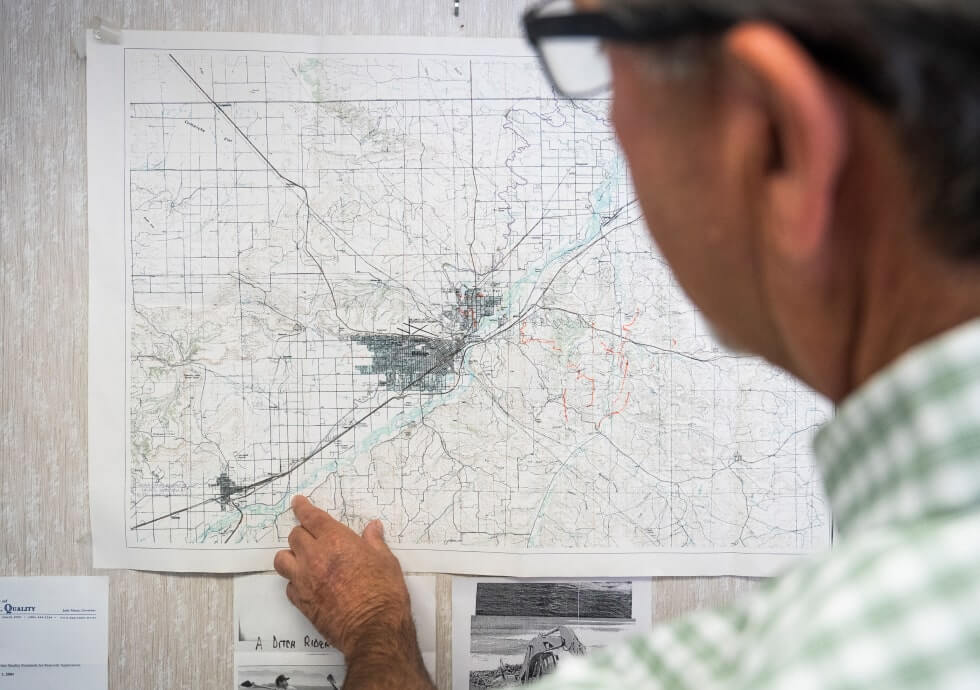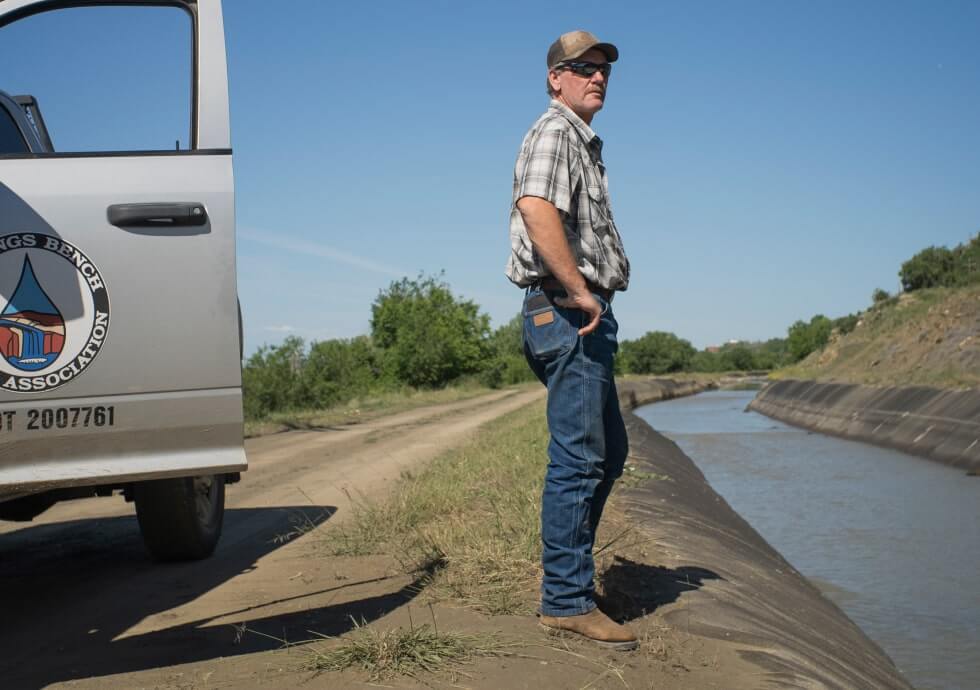A deteriorating irrigation canal, wooden flume, and tunnel threatens the town of Billings, MT.
From the city streets of Billings it’s hard to see the 100-year-old canal moving 600 cubic feet per second (CFS) of water from the Yellowstone River to farms and ranches east of town. The canal flows roughly 70 feet above the city center. At one point, the canal disappears into the Rimrock sandstone formation via an aging tunnel suspended above neighborhoods, schools, and businesses.
Allan Workman, Billings Bench Water Association’s (BBWA) Superintendent, worries every day during irrigation season.
“We have dramatic weather changes, dramatic demand needs,” Workman says. “My job is to stay on top of those needs and satisfy our customers, knowing what they’re going to do before they’re going to do it. Be it having water there, be it taking water away. I gotta play a guessing game sometimes. There’s a lot of sleepless nights. You run this amount of water through a metropolitan area of 120,000 people, the risk is high.”

BBWA is a private water association established as Billings Land and Irrigation in 1900 to bring water to farms, ranches, and municipal parks and businesses. The system evolved and grew over the 20th Century, but most of its current infrastructure, including a wooden flume that shuttles BBWA canal water over Canyon Creek and an 1,875-foot-long sandstone tunnel, was constructed before 1940. Workman and his small staff monitor the 66 miles of canals that irrigate over 18,000 acres of farm land and continue to supply water for municipal use by the City.
 BBWA Superintendent Allan Workman inspects the wooden flume over Canyon Creek
BBWA Superintendent Allan Workman inspects the wooden flume over Canyon Creek BBWA Board President Jim Stott with the canal map
BBWA Board President Jim Stott with the canal map Allan overlooks the main canal
Allan overlooks the main canal
“We’re on call 24 hours a day, seven days a week, 180 days a year. The water doesn’t know what day of the week it is.”
– Allan Workman, BBWA Superintendent
Operations and maintenance, not to mention the overall anxiety about safety, takes a toll on Workman and his staff during their intense irrigation season.
“The turnaround rate with employees is relatively high,” says Workman. “My guys are on call 24 hours a day, seven days a week, 180 days a year. The water doesn’t know what day of the week it is. Moving forward, it’s going to be a struggle to find employees willing to put in those kinds of hours.”
For BBWA, modernization is a more resilient, easier-to-manage system – whether that’s a new tunnel, an upgraded flume, or gates that can be monitored and controlled electronically.
Billings is not unique. Other communities and towns around the West are operating with century-old irrigation systems. Modernizing irrigation systems, like BBWA, is a way to support farms and the environment, while at the same time, ensuring community resilience for the next 100 years.
